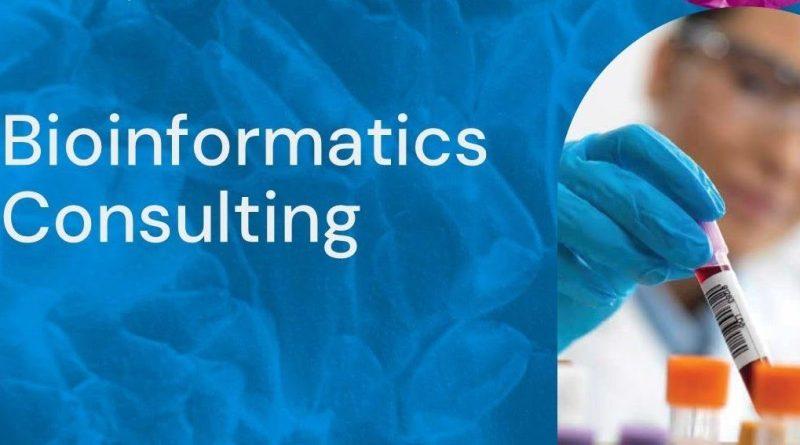Challenges in Bioinformatics and How Consultants Can Help Solve Them
Why is bioinformatics so challenging? With the rapid growth of genomic data, it’s easy for research labs and biotech companies to feel overwhelmed. Handling complex data requires more than technical expertise—it needs a deep understanding of biology and technology. This is where the role of a bioinformatics consulting company in the Bay Area becomes essential.
Imagine a small research lab juggling multiple projects. Each project has its own data requirements, tools, and complexities. Without a dedicated bioinformatics expert, researchers may spend more time managing data than conducting meaningful research. This frustrating scenario can delay discoveries and increase costs.
Bioinformatics consultants step in to fill this gap. By bringing expertise and tailored solutions, they ensure that insights, not data complications, drive research. Let’s look into the main challenges in bioinformatics and how consultants can solve them.
1. Data Overload
The amount of biological data generated today is staggering. Whether it’s genome sequencing, transcriptomics, or proteomics, researchers handle terabytes of information. Managing and making sense of this data is no small feat. Poor data management leads to missed insights and delayed projects.
A bioinformatics consulting company in the Bay Area can design custom data pipelines and storage solutions tailored to the project’s specific needs. The right workflows ensure data is processed, cleaned, and analyzed effectively. Researchers can then focus on interpreting results rather than struggling with data wrangling.
2. Lack of Standardization
Data from various sources often comes in different formats. Without proper standardization, comparing results across studies or integrating data into a single cohesive analysis becomes difficult. This inconsistency is a significant hurdle in bioinformatics.
Bioinformatics consultants are experts at creating standardized pipelines and data formats. They ensure that data is comparable, regardless of its source or how it was generated. Standardization saves time, minimizes errors, and increases the reliability of research findings.
3. High Learning Curve for Tools and Software
The number of bioinformatics tools and software options is overwhelming. From R to Python libraries, each tool has its learning curve. For researchers who are not computational experts, mastering these tools can take time and effort that detracts from actual research.
This is where bioinformatics consultants become invaluable. They eliminate the steep learning curve by handling the entire computational analysis or providing custom training to in-house teams. This enables researchers to get up to speed without wasting valuable time.
4. Data Security and Compliance
With the rise of personalized medicine and patient data, ensuring data security and maintaining compliance with regulations like HIPAA is crucial. Many labs struggle to build secure systems that protect sensitive health data.
Consultants specialize in creating secure data storage and access protocols. They’re familiar with compliance standards, ensuring your data is handled according to legal requirements. Having a trusted consultant manage security and compliance can prevent costly errors and data breaches.
5. Integration of Multidisciplinary Data
Bioinformatics often involves integrating data from multiple disciplines, such as genetics, epigenetics, and clinical data. Bringing these different data types together is challenging but essential for generating meaningful insights.
Experienced bioinformatics consultants develop strategies to integrate multidisciplinary data. They use their expertise to create a holistic view of the research, combining insights from various data sources. This integration can reveal patterns and connections that would otherwise be missed.
6. Budget Constraints
For many research labs, hiring a full-time bioinformatician is not financially feasible. This can leave projects understaffed and researchers overburdened.
Working with a bioinformatics consulting company offers flexibility. You can access expert help on a project basis without the long-term commitment of hiring full-time staff. This makes consulting a cost-effective option, especially for small labs and startups. With consultants, you get access to high-level expertise without the overhead.
7. Keeping Up with Rapid Technological Advancements
Bioinformatics is constantly evolving, with new tools, techniques, and methodologies emerging all the time. Staying up-to-date with these developments is challenging for researchers who are focused on their specific areas.
Consultants dedicate time to staying current with industry trends. They’re always aware of the latest tools and methodologies, which means they can recommend cutting-edge solutions for your projects. With consultants, your research won’t fall behind due to outdated tools or methods.
How a Bioinformatics Consulting Company Can Transform Your Research
A bioinformatics consulting company like MedGenome can make a significant difference in the success of your projects. Based in the Bay Area, they have a unique advantage by being at the heart of the biotech industry. Their location provides them access to the latest technologies and the opportunity to collaborate with leading researchers and institutions.
Here’s how partnering with a bioinformatics consultant can transform your project:
- Tailored Solutions: Every project is different. Consultants customize their approach based on the specific needs of your research.
- Faster Turnaround: With experienced professionals at the helm, projects move faster, avoiding common bottlenecks.
- Expert Guidance: You benefit from insights that only years of experience can bring.
Services Offered by a Bioinformatics Consulting Company
1. Data Analysis and Interpretation
From RNA-Seq to whole-genome sequencing, bioinformatics consultants offer a range of services to help analyze complex data. They deliver accurate insights and actionable results.
2. Pipeline Development and Automation
Consultants build custom data pipelines to automate repetitive tasks. This makes the research process faster and more efficient, freeing up valuable time for researchers.
3. Data Visualization
Creating meaningful visual representations of data is challenging. Consultants excel at building interactive dashboards and visualization tools that highlight key findings and allow for easier interpretation of results.
4. Training and Support
Consultants provide training sessions and ongoing support for research teams looking to enhance their bioinformatics skills. This empowers in-house teams to handle complex analyses independently.
5. Compliance and Security
A critical service offered by top bioinformatics consulting firms is ensuring that your data is secure and compliant with regulations. They develop protocols that keep your research safe and legally compliant.
Choosing the Right Consultant
When selecting a bioinformatics consulting company, consider:
- Experience and Expertise: Does the consultant have a track record with similar projects?
- Communication Skills: Can they explain complex concepts clearly?
- Flexibility: Are they able to adapt to your unique requirements?
A good consultant acts as a partner, working closely with your team to achieve your research goals.
Why Choose MedGenome?
MedGenome is a leading bioinformatics consulting company in the Bay Area. With a proven track record in genomics research, it offers comprehensive services to help biotech firms, research labs, and healthcare providers tackle complex data challenges. Its team brings a wealth of experience, making it a trusted partner for any bioinformatics project.
Connect with MedGenome’s expert team to see how they can support your next project. Whether you need help with data analysis, pipeline development, or compliance, they’ve got you covered. Get in touch to explore how partnering with the right consultants can streamline your research and accelerate your discoveries.



